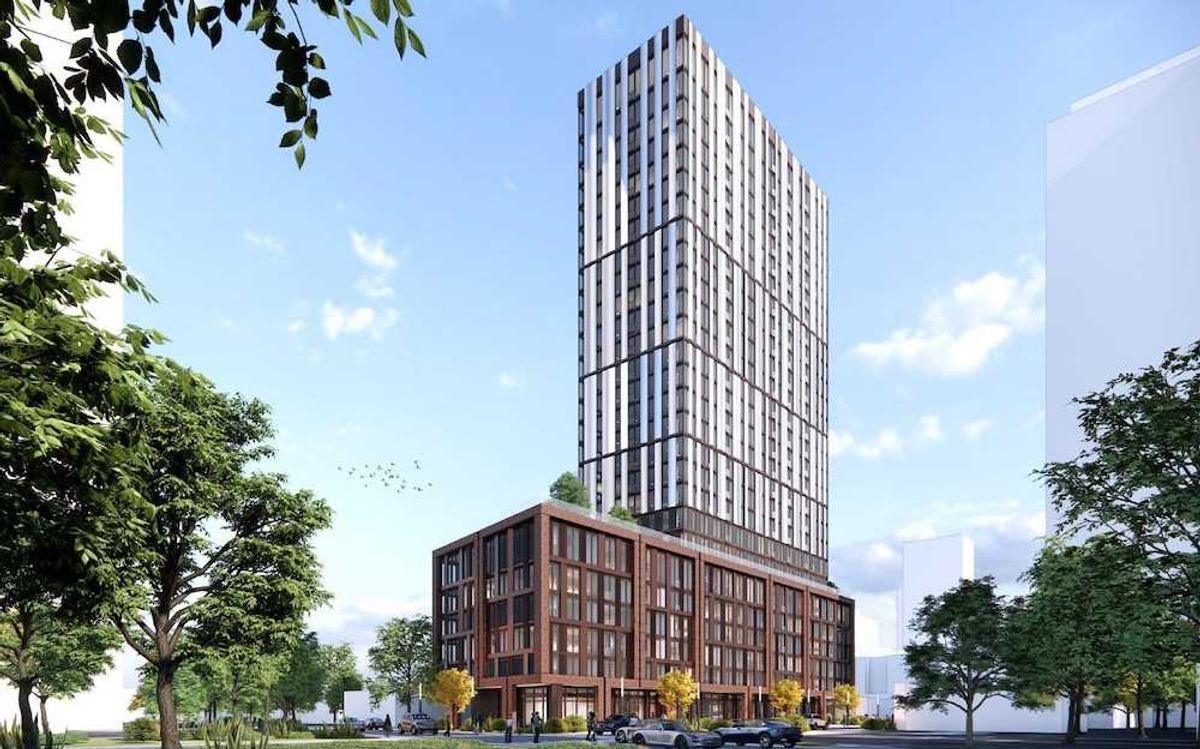Ivan Ciraj is starting at Square One.
The founder of Ivan Real Estate and the broker at Cloud Realty is known for his work in the luxury real estate market around the Platinum Belt of Lake Ontario and other exclusive pockets in Oakville and Toronto. Combining personal service with the use of technology, Ciraj has turned his Square One Life brand into the number one website for in-demand condos near Mississauga Square One Shopping Centre.
Since he represents some of the hottest luxury homes and condos in Ontario, Ciraj is no stranger to navigating multiple offers of millions of dollars for his clients, which is why this week's question is well-suited for him.
READ: The Exchange District Will Completely Transform Downtown Mississauga
What should you do if your initial offer is rejected?
The best thing you can do, especially in the Toronto market, is to prepare everything ahead of time. This means evaluating your financing situation and if you're offering on a home, potentially conducting a pre-home inspection prior to the offer date, especially if you know you're going to be competing with multiple parties.
If your offer gets rejected and the seller accepts another offer, you should re-evaluate your strategy for the next property. The first thing your Realtor should do is look at why the offer was rejected. Was it due to price-point or the result of a condition? The condition could be the status certificate review, home inspection or financing. We usually advise clients against removing conditions to review a status certificate or do a home inspection. However, with financing, that's usually the first one that's removed to have extra leverage.
READ: Buyers And Bidding Wars: How To Come Out The Winner
Typically, when an offer gets accepted, you have five business days to send the accepted offer to a mortgage professional who would then provide you with a commitment letter stating that you can indeed get financing for that specific property at that specific price. This is the financing condition: essentially needing to provide that letter before your offer is fully accepted.
We encourage our clients when they’re entering a multiple offer situation to essentially get that approval ahead of time. Even though the mortgage professional cannot give you a commitment letter ahead, they can essentially look at your entire financial situation and say for example, “OK. If you’re buying a home up to $500,000, you’re good to go. Everything looks fine based on your ratios, based on your credit history and everything like that. You’d be safe to not include a financing condition up to that $500,000 price-point.”
READ: The Pros And Cons Of Flat Fee Service Vs. Real Estate Agent
Now we know, when we’re browsing properties on the market, that if we come in at that price-point, we should be relatively secure to not include the financing condition. Anything beyond that, we would have to include it and the client should understand why it’s being included.
Removing the financing condition ahead of time is the number one tip we give to clients who aren't quite aware of how the market works and how competitive it is. Sometimes it takes that one rejected offer for them to realize, just how competitive the market really is.
READ: OREA Wants To End Bully Offers To Level Playing Field For Home Buyers
Removing the financing condition is just one tactic you can use if your initial offer was rejected on a property with multiple offers. If removing the financing condition doesn’t work and you’re still beat out, just be sure to remove it and do a home inspection or, if it’s a condo, review the status certificate ahead of time on the next property you consider with multiple offers, so you’re less likely to get rejected twice.
If your initial offer was rejected and no other offers were placed, you might want to take a closer look at that particular unit or home. In this market, most offers are rejected as a result of not coming close enough to the asking price. In those situations, I try to get the seller's representative to at least send back a counter-offer. However, if an offer is completely rejected, to the point we've insulted the other party, then we’d have to go back to our client and explain that to them.
READ: 7 Questions Buyers Should Ask Their Mortgage Lenders
But that doesn’t mean we’d walk away from the property. After talking to our clients, we evaluate whether the property is overpriced or if our offer was way under market value. If we do determine that our offer was too low, then we would go back to the negotiating table with an offer that's closer to where the price should be.
Rejected offers that are uncontested should always be investigated on a case by case basis. In one-on-one situations, the communication levels between the two parties is typically higher. As soon as there is another offer involved that dynamic changes since the listing agent cannot disclose specifics about the offers. In this case, it's your agent's job to infer certain things and disclose those inferences to you.
Do you have a real estate question? Let us know on Twitter, Facebook or via email at info@storeys.com






















